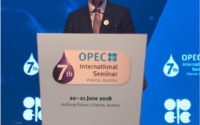Listen To The Children, Embrace Technology And Focus On Pre-Schooling To Reform MENA’s Educational Sector
The seventh annual Global Education & Skills Forum (GESF 2019), a Varkey Foundation initiative, hosted a panel discussion on ways to improving education in the Middle East and North Africa, especially within large refugee populations, and how to ensure university graduates are employable.
The panel session included Sabri Saidam, Minister of Education, Palestine, and deliberated the unique challenges the Middle East and North Africa regions face.
Saidam said that there is a very traditional school of thought in the region, and changes are not always entirely welcome. Education is the only sector with no overwhelming reform and that it is time that the region changed how it implements schooling.
He explained that we are not listening enough to the children and what their schooling needs are; everything is changing today with the adoption of technology and we need to welcome this change. Saidam added there is particular importance to promoting education in Palestine as it means preserving their culture for generations to come.
He stressed that there must be a strategy to how schooling is supported. Pre-schooling is key and has become mandatory in Palestine. He also introduced a no home-work policy until Grade 4 and kept schools open during summer for extracurricular activities. Education should be fun, and we need to bring back this idea into the education, he noted.
The panel observed that only 30 percent of kids go to pre-school, which is very low. The region needs to invest more into pre-school because it is important to lay the groundwork for a child’s schooling future. So far, the investment is mainly in higher education.
The panel said that there are many strategies, but there isn’t any implementation and execution. It is important to align all interests and form a pact for education to involve all with the student at the heart of it. This does not only fall on Ministries of Education, but must be a collective effort by all stakeholders.
Changing mindsets to implement reform is crucial and it is possible as with other success stories globally. Vision, leadership, and financial access are all very important to make the change. It is also essential to leverage the media and social media to further drive the change.







